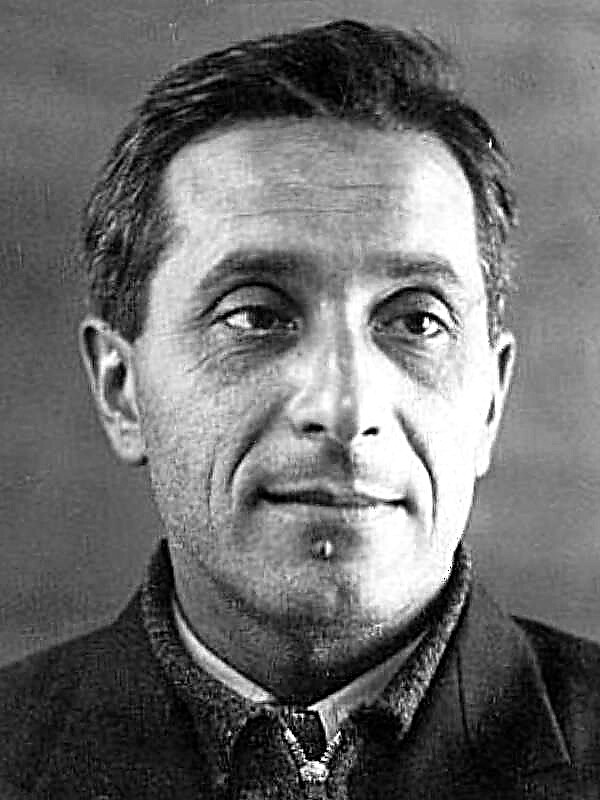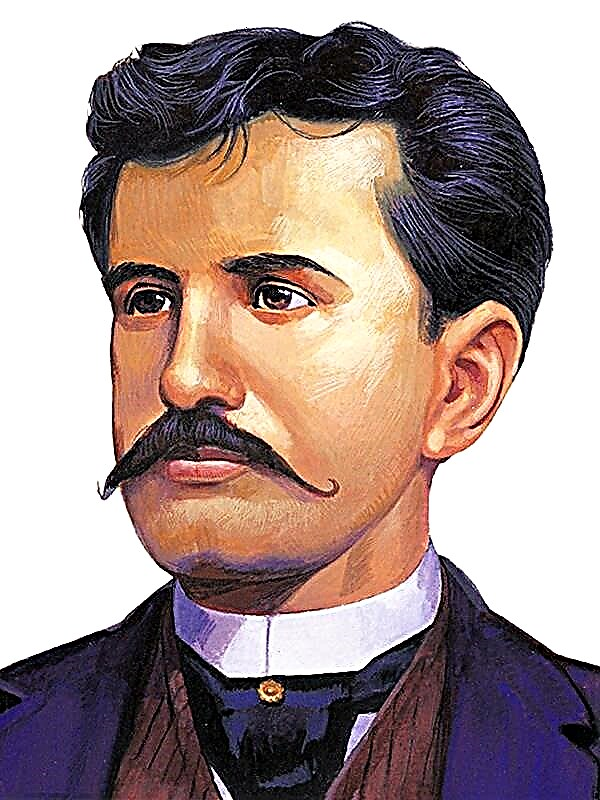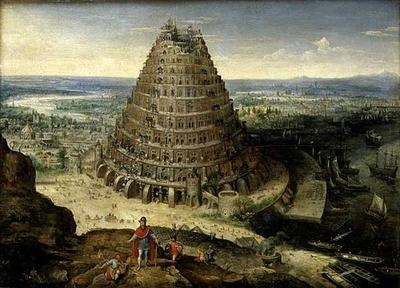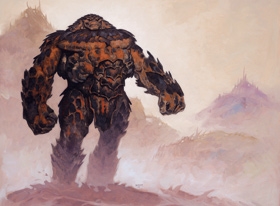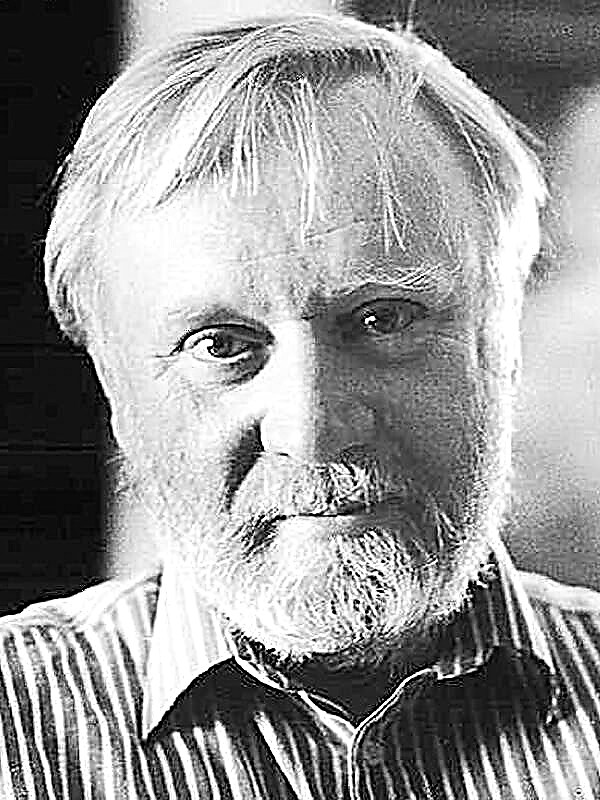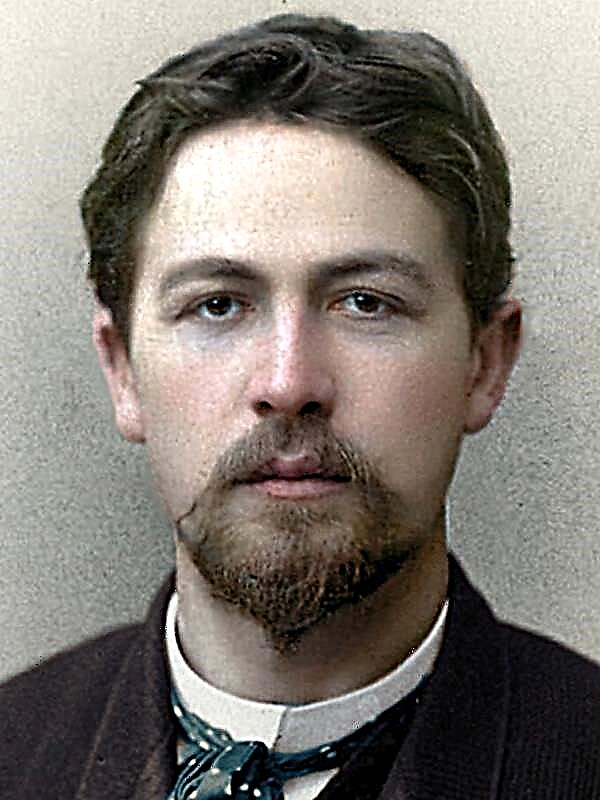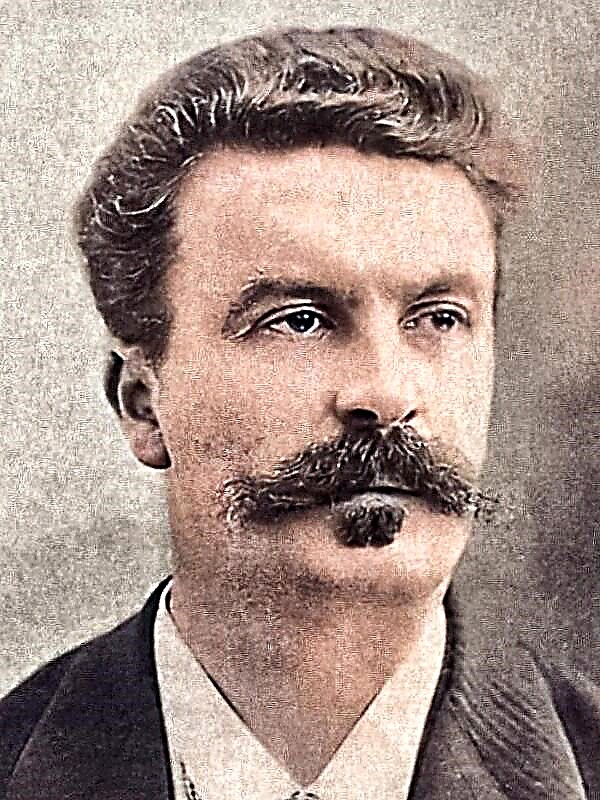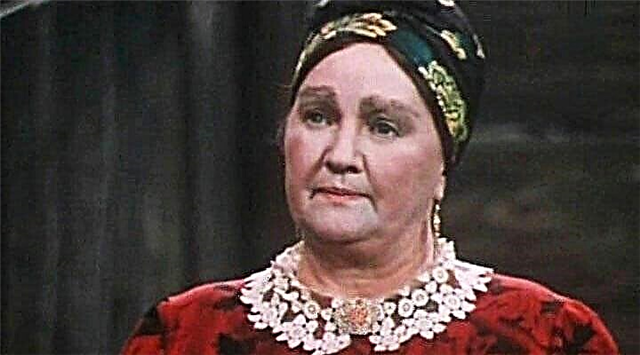The word "metamorphosis" means "transformation." There were a lot of ancient myths that ended with the transformations of the heroes - into a river, into a mountain, into an animal, into a plant, into a constellation. The poet Ovid tried to collect all such myths about the transformations that he knew; there were more than two hundred of them. He retold them one by one, grabbing, binding, interposing each other; it turned out a long poem entitled "Metamorphoses". It begins with the creation of the world - because when Chaos split into Heaven and Earth, it was already the first transformation in the world. And it ends literally yesterday: the year before Ovid's birth, Julius Caesar was killed in Rome, a large comet appeared in the sky, and everyone said that it was ascended into heaven the soul of Caesar, who became a god, - and this is nothing more than transformation.
So the poem moves from the oldest to the most recent times. The older - the greater, the more cosmic the described transformations: the world flood, the world fire. The flood was the punishment for the first people for their sins - the land became the sea, the surf beat in the tops of the mountains, the fish swam between the tree branches, people on fragile rafts were starving. Only two of the righteous survived on the two-mountain Mount Parnassus - the forefather Deucalion and his wife Pyrrhus. Water spilled out, a deserted and silent world opened; with tears, they prayed to the gods and heard the answer: "Throw mother bones behind your back!" With difficulty they understood: the common mother is the Earth, her bones are stones; they began to throw stones over their shoulders, and behind Deucalion, men grew from these stones, and behind Pierre, women. Thus appeared on earth a new human race.
And the fire was not by the will of the gods, but by the audacity of an unreasonable teenager. Young Phaeton, the son of the Sun, asked his father: “They do not believe me that I am your son: let me ride through the sky in your golden chariot from east to sunset. “Be your way,” answered the father, “but beware: do not rule either up or down, keep in the middle, otherwise it will be trouble!” And trouble came: at the height of the young man's head was spinning, his hand trembled, the horses went astray, both Cancer and Scorpio shied away from them in the sky, mountain forests from the Caucasus to Atlas flashed on the ground, rivers boiled from the Rhine to the Ganges, the sea dried up, cracked soil, light made its way into the black kingdom of Hades, and then the old Earth itself, raising its head, prayed to Zeus: “If you want to burn, burn, but have mercy on the world, may there be no new Chaos!” Zeus struck with lightning, the chariot collapsed, and a poem was written over the remains of Phaeton: "The Phaeton is defeated here: he dared to the great, he fell."
The age of heroes begins, the gods go to mortals, mortals fall into pride. Weaver Arachne calls the goddess Athena, the inventor of textile, Athena the Olympic gods on the fabric, Poseidon creates a horse for people, Athena herself creates an olive, and on the edges - the punishments of those who dare to equal the gods: those who are turned to the mountains, those to the mountains birds, those in the steps of the temple. And on Arachne's fabric — how Zeus turned into a bull to abduct one beauty, golden rain for another, a swan for the third, a snake for the fourth; how Poseidon turned into a ram, and a horse, and a dolphin; how Apollo took the form of a shepherd, and Dionysus became a winegrower, and more and more. The fabric of Arachne is no worse than the fabric of Athena, and Athena executes it not for work, but for blasphemy: it turns it into a spider that hangs in the corner and always weaves a web. "Spider" in Greek - "arachne."
Zeus's son, Dionysus the winegrower, a miracle worker walks the world and gives people wine. He punishes his enemies: the shipbuilders who transported him across the sea decided to kidnap such a handsome man and sell him into slavery - but the ship stops them, takes root in the bottom, ivy wraps around the mast, grapes hang from the sails, and robbers bend their bodies, cover themselves with scales and dolphins jump in the sea. And he endows his friends with anything, but they do not always ask for the rational. The greedy King Midas asked: “May everything I touch become gold!” - and now golden bread and meat break his teeth, and golden water pours molten metal down his throat. Extending his miraculous hands, he prays: “Ah, deliver me from the pernicious gift!” - and Dionysus says with a smile: "Wash your hands in the Paktol river." The force goes into the water, the king eats and drinks again, and the Paktol River has since been rolling golden sand.
Not only young Dionysus, but also the elder gods appear between people. Zeus himself with Hermes in the guise of wanderers bypass human villages, but rude masters drive them from the rapids. Only in one poor hut did their old and old women, Philemon and Bavkida accept them. The guests come in, bending their heads, sit down on the mat, in front of them is a table with a lame leg, propped up by a shard, instead of a tablecloth, its board is rubbed with mint, in clay bowls - eggs, cottage cheese, vegetables, dried berries. Here is the wine mixed with water, and suddenly the owners see: a miracle - no matter how much you drink, it does not decrease in bowls. Then they guess who is in front of them, and in fear they pray: "Forgive us, gods, for a poor reception." In response, the hut is transformed, the clay floor becomes marble, the roof rises on the columns, the walls shine with gold, and the mighty Zeus says: “Ask for what you want!” “We want to remain in this temple of your priest and priestess, and both lived together and die together.” And so it was; and when the time came, Philemon and Bavkida turned into oak and linden in front of each other's eyes, only having managed to say “Goodbye!” to each other.
Meanwhile, the age of heroes is taking its course. Perseus kills the Gorgon, which turns into a stone with a look, and when she puts her severed head on its face on the leaves, the leaves turn into corals. Jason brings Medea from Colchis, and she turns his decrepit father from old to young. Hercules fights for his wife with the river god Acheloy, he turns into a serpent, then a bull - and yet he is defeated. Theseus enters the Cretan Labyrinth and kills the monstrous Minotaur there; Princess Ariadne gave him a thread, he pulled it after him along the tangled corridors from the entrance to the middle, and then found the way back through it. This Ariadne was taken from Theseus and made his wife by the god Dionysus, and he threw a whisk from her head into the sky, and there he was lit up by the constellation of the Northern Crown.
The builder of the Cretan Labyrinth was a craftsman, the Athenian Daedalus, a captive of the formidable king Minos, the son of Zeus and the father of the Minotaur. Daedalus languished on his island, but could not escape: all the seas were in the power of Minos. Then he decided to fly through the sky: “Minos owns everything, but he does not own air!” Gathering bird feathers, he fastens them with wax, measures the length, calibrates the bend of the wing; and his boy, Icarus, next either sculpts lumps of wax or catches flying feathers. Now big wings are ready for the father, small for the son, and Daedalus teaches Icarus: “Fly after me, keep in the middle: if you take it lower, feathers become heavier from the spray of the sea; if you take it higher, the wax will soften from the heat of the sun. ” They are flying; fishermen on the banks and plowmen on arable land look up at the sky and freeze, thinking that they are the highest gods. But again, the fate of the Phaeton is repeated: Icarus joyfully takes it up, melts the wax, feathers fall apart, with his bare hands he grabs the air, and now the sea is sweeping his lips, calling to his father. Since then, this sea is called the Ikari Sea.
As Daedalus was a craftsman in Crete, so was Pygmalion, a craftsman in Cyprus. Both of them were sculptors: they said about Daedalus that his statues knew how to walk, about Pygmalion - as if his statue came to life and became his wife. It was a stone girl named Galatea, so beautiful that Pygmalion fell in love with her: he caressed the stone body, dressed, adorned, languished, and finally prayed to the gods:
“Give me a wife like my statue!” And the goddess of love Aphrodite responded: he touches the statue and feels softness and warmth, he kisses it, Galatea opens his eyes and at once sees the white light and the face of the lover. Pygmalion was happy, but his descendants were miserable. He had a son, Kinir, and Kinir had a daughter, Mirra, and this Mirra, with incestuous love, fell in love with her father. In horror, the gods turned her into a tree, from the bark of which, like tears, oozing fragrant tar, still called myrrh. And when it was time to give birth, the tree cracked, and out of the crack appeared a baby named Adonis. He grew so beautiful that Aphrodite herself took him as her lover. But not to good: the jealous god of war Ares sent a wild boar to hunt him, Adonis died, and a short-lived anemone flower grew from his blood.
And Pygmalion either had a great-grandson, or a great-granddaughter, named either Kenida or Kenya. She was born a girl, the sea Poseidon fell in love with her, took possession of her and said: “Ask me for something nice. She replied:“ So that no one could dishonor me anymore like you — I want to be a man! ” Started these words in a female voice, finished male. And in addition, rejoicing at such a desire of Kenida, God gave her male body invulnerability from wounds. At this time, the king of the Lapith tribe, a friend of Theseus, celebrated a crowded wedding. The guests at the wedding were centaurs, half-horses, half-horses from the neighboring mountains, wild and violent. Unaccustomed to wine, they got drunk and pounced on women, the lapifs began to defend their wives, the famous battle of the lapifs with centaurs began, which Greek sculptors loved to portray. First, in the wedding palace, then in the open air, first they threw themselves at each other with molded bowls and altar heads, then torn out by pines and clumps of rocks. It was then that Keny showed himself - nothing took him, the stones bounced off him like a hail from the roof, spears and swords broke like granite. Then the centaurs began to bombard him with tree trunks: “Let the wounds be replaced by a load!” - a mountain of trunks grew over his body and first hesitated, as in an earthquake, and then subsided. And when the battle was over and the trunks were dismantled, then a dead girl Kenida lay under them,
The poem is drawing to a close: old Nestor in the Greek camp near Troy tells about the battle of the Lalif with the centaurs. Even the Trojan War does not do without transformations. Achilles fell, and his body was taken out of the battle by two: a powerful Ajax carried it on his shoulders, a clever Odysseus reflected the seeding Trojans. Achilles left the famous armor forged by Hephaestus: who will get it? Ajax says: “I was the first to go to war; I am the strongest after Achilles; I am the best in open battle, and Odysseus is only in secret tricks; the armor to me! ” Odysseus says: “But only I gathered the Greeks to war; only I attracted Achilles himself; only I kept the army from returning for the tenth year; the mind is more important than power; the armor to me! ” The Greeks award the armor to Odysseus, the offended Ajax throws himself on the sword, and a hyacinth flower grows from his blood, on which the spots add up in the letters "AI" - a mournful cry and the beginning of the Ajax name.
Troy has fallen, Aeneas is swimming with Trojan shrines to the west, at each of his parking lots he hears stories about transformations memorable in these distant lands. He wages war for Latsy, his descendants rule in Alba, and it turns out that the surrounding Italy is no less rich in tales of transformation than Greece. Romulus founds Rome and ascends into heaven - he himself turns into a god; seven centuries later, Julius Caesar will save Rome in civil wars and will also ascend as a comet - he himself will turn into a god. And for the time being, the successor of Romulus, Numa Pompilius, the wisest of the ancient Roman kings, listens to the speeches of Pythagoras, the wisest of the Greek philosophers, and Pythagoras explains to him and readers what are the transformations about which the stories in such a long poem were intertwined.
Nothing lasts forever, says Pythagoras, but the soul alone. She lives, unchanging, changing her bodily membranes, rejoicing in the new, forgetting about the former. The soul of Pythagoras once lived in the Trojan hero Euphorbe; he, Pythagoras, remembers this, but people usually don’t remember. From human bodies, the soul can pass into the bodies of animals, and birds, and again people; therefore, the wise will not eat meat. “Like a malleable wax that molds into new molds, / Does not abide by one, does not have a single look, / But remains itself, - as if the soul, remaining / The same, - I say so! - passes into various flesh. "
And all flesh, every body, every substance is changeable. Everything flows: moments, hours, days, seasons, ages of a person change. The earth becomes thinner into water, water into air, air into fire, and again the fire condenses into thunderclouds, the clouds pour out in the rain, and the earth becomes darker from rain. The mountains were the sea, and sea shells were found in them, and the sea once flooded the once dry plains; rivers dry up and new ones make their way, islands break away from the mainland and grow together with the mainland. Troy was powerful, and now in the dust, Rome is now small and weak, and will be omnipotent: "There is nothing in the world, but everything is renewed forever."
These are the eternal changes of everything that we see in the world, and they remind us of ancient stories about transformations - metamorphoses.

